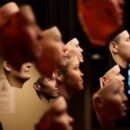The power to lead by example
My young son arrived on the planet last year and brought with him a message of profound importance. As I have spent the past few months playing with him and observing him, I have become aware of an unnerving fact: he watches me very, very carefully; and then behaves as I do. He sees what I eat; listens to the tone of voice I use when dealing with people; is aware of how I spend my time. Having observed all of this, he mimics me at every opportunity.
That is what children do: they learn, first and foremost, from their parents. It is we who set their basic foundations: of learning, values and behaviour. That is a truly enormous responsibility, and one that has caused me many a nervous moment. For it is very clear now: if I shout at matatu drivers on the road, the boy is listening. If I over-indulge in junk food, his eyes are on me. If I plonk myself before the TV for hours, he’s there with me. It’s in my hands: I can teach him all the right habits and behaviours by living them; or I can sit back and watch him become part of a rapidly degenerating world.
All parents know this, but they don’t always want to acknowledge it. The party mustn’t end just because children arrive, surely? The kids should just become part of the scene. We’re happy to give them a few lectures and sermons about good behaviour; but we’re not really prepared to change our own lives to set the right example. Yet we moan and whine incessantly about society’s loss of values, moral decay and general depravity. But that, you see, isn’t our fault; it’s the doing of other people – leaders, the media, sinners, whoever.
Values, good and bad, get transmitted. Human beings learn by example. We are mimics by nature. We are infected by the deeds of those around us. We are inspired by lives well lived; and polluted by ill-will in the atmosphere. And we pay special attention to those we regard as leaders. In the home, it’s the parents; at the workplace, the top executives; and in society as a whole, we focus our gaze on politicians and celebrities.
Walk into a family home and observe the children. After a while it will be obvious that what you are really observing are the parents. If the children are courteous and friendly, it is because that is what their primary role models have demonstrated to them. And the chilling thing is this: if you are a heavy drinker or smoker, take it in writing that your child will in all likelihood become the same one day. You won’t need to blame it on the school or on “bad company”; you are the company that matters the most.
The same applies in corporations. Are staff members generally discourteous and unhelpful? Do they arrive late and leave early? Do they show dedication to their work, or are they always distracted? Look no further than the leaders of the business. The single biggest shaper of corporate culture is the example set by leadership. Boards of directors and management teams often spend vast sums of money and immense amounts of management time worrying about corporate culture. Why doesn’t our culture support our new strategy? Why won’t employees behave the way we want them to? Why are negative behavioural traits so deeply embedded in this company? Sometimes, the best thing a consultant can do when asked these questions is to hold up a large mirror.
The good news is that cultural turnarounds are not that difficult to pull off – provided enough leaders are able to “walk the walk”. As Malcolm Gladwell pointed out in his famous book “The Tipping Point” (now acknowledged as a modern classic), things can ‘tip’ positively after a certain point. It is possible to create a “positive epidemic” and infect the population around us. And the effects can be sudden and dramatic. Change programmes are never linear in effect: there is usually an initial period of frustration and even despair – but often the floodgates can open quite unexpectedly. The crucial factor, however, is this: behaviour causes behaviour. You can invest in all the fancy staff harmonisation projects, measurement and incentive schemes and expensive training plans – that is not the primary battlefield. The day-to-day actions, behaviours and decisions of those in executive leadership are the true seeds of change. So, if you’re sitting at the top of the tree looking down, take a hard look at yourself and the people sitting on the upper branches first.
The same argument holds in society as a whole. If you are fortunate enough to have been given the privilege of a leadership position in whatever capacity, know that your responsibility does not just cover providing services and delivering results – it extends to your personal behaviour as well. So if you are a clergyman who shows an unhealthy preoccupation with income and is always engaged in leadership disputes – be assured that you will produce a flock that becomes obsessed with money and will one day sink into violent combat. If you are an MP whose modus operandi is to instil tribal fear at your political rallies – know that you are sowing the seeds of future ethnic clashes that may leave hundreds dead and the local economy in tatters. The higher you go in leadership, the greater the number of eyes that watch your every move. They will do as you do. Is this something you can afford to take lightly?
This is not another appeal for good top leadership being the only way to change society. We are all leaders in some way. In our homes; in our places of work; in our clubs and groupings; in our circles of friends. Whether we like it or not, we infect the people around us with our behaviour and actions, every single day of our lives. That is why Mahatma Gandhi told the world: “My life is my message”. Saying the right things, talking the good talk is only of limited value. The only change that matters comes from example. We are only truly impressed when the message is apparent in every deed and act. Do we wish Kenya was a gentler, safer, more honest, more productive place? We have the power to make it so, individually and personally. By being less angry, more scrupulous and harder working, we can plant seeds and start positive epidemics of our own.
But no one wants to hear that, because it’s far easier to blame people “out there”. Insecurity is caused by vicious criminals and lazy policemen; corruption is caused by rapacious leaders and weak civil servants; economic stagnation is caused by people not creating enough jobs. This kind of simple-minded analysis ignores that fact of our inter-connectedness. We are part of the same energy pool, and what we put into this pool is what comes out of it. At a time when the primary role models in society are scheming politicians, half-naked celebrities, impudent land-grabbers and angry rappers, we must pay more attention to our own power to lead by example.

Buy Sunny Bindra's new book
The X in CX
here »
Popular Posts
- You are who you hang out withSeptember 28, 2025
- Born knowing the waySeptember 21, 2025
- The cost of pretenceSeptember 7, 2025
- The art of the CX rescueSeptember 14, 2025
- Bruise, mend, continueAugust 31, 2025











